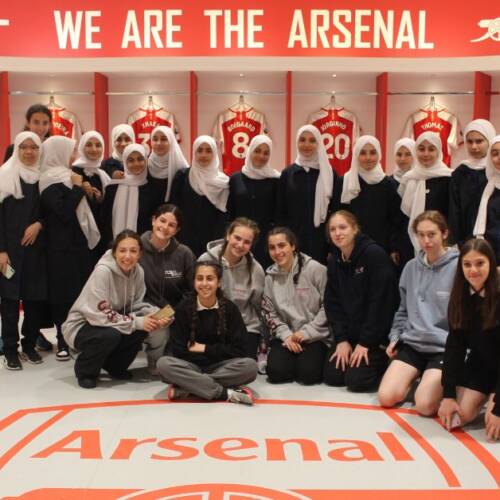
Muslim Employment Charter Aims to Foster Inclusion in Law Firms
11 Jul 2023In a bid to promote diversity and inclusion within law firms, a future trainee solicitor, Waqas Hussain, is spearheading efforts to raise awareness about the unique practices and boundaries that affect Muslim lawyers on a day-to-day basis. Hussain, the founder of the Muslim Employment Charter (MEC), hopes to bridge the gap between faith-based requirements and professional careers within the legal industry.
Recent data from the Solicitors Regulation Authority indicates that the percentage of Muslim solicitors has increased from 5% in 2019 to 6%, closely aligning with the proportion of the UK population. This positive trend demonstrates progress towards a more representative legal profession. Notably, the Law Society made history by appointing Lubna Shuja as its first Muslim president.
The Muslim Employment Charter (MEC), established by Waqas Hussain, aims to support employers in meeting the specific needs of Muslim professionals. By adhering to the three-part charter, law firms commit to addressing the workplace challenges commonly faced by Muslim employees. The ultimate goal is to create inclusive environments where Muslim professionals no longer need to compromise their faith for their careers.
One of the key hurdles is the inconsistent accommodation of Muslim practices across law firms. While certain firms have policies in place for prayer facilities, there remains a lack of inclusivity when it comes to social and networking events, which often revolve around alcohol. A significant knowledge gap exists among employers regarding the basic principles of Islam, resulting in a limited understanding of the needs of their Muslim workforce. Consequently, individual employees often bear the burden of requesting faith-based workplace accommodations, leading to hesitancy due to the potential discomfort of such conversations.
Law firms that choose to sign up for the Muslim Employment Charter stand to benefit in various ways. Beyond enhancing their reputation, these firms can establish stronger client relationships, ensure legal compliance, empower their workforce, attract top talent, and contribute to social mobility.
The inspiration for the charter came from Waqas Hussain’s experience in international recruitment. Witnessing the challenges faced by Muslim professionals who struggled to advance in their careers without compromising their religious obligations, he embarked on a quest for solutions. Encountering a similar charter for Muslim athletes called Nujum Sports, Hussain decided to create a counterpart specifically tailored to Muslim professionals. To gain deeper insights into the workplace challenges faced by Muslim employees, he conducted a comprehensive survey involving over 500 participants.
After months of research and collaboration, the Muslim Employment Charter was born. The charter’s three pillars focus on establishing prayer and ablution facilities within workplaces, promoting inclusive social and networking events that do not revolve around alcohol, and fostering cultural understanding through tailored workshops and participation in Islamophobia Awareness Month.
The team behind the Muslim Employment Charter consists of dedicated individuals actively involved in law societies, diversity, equity, and inclusion committees, and possess expertise in Islamic jurisprudence. Their collective efforts aim to drive positive change within the legal industry.
Looking ahead, the Muslim Employment Charter plans to engage with progressive law firms, seeking support and participation from as many employees as possible. By raising awareness among Muslim professionals, the MEC strives to ensure that they no longer suffer in silence and understand that there is a viable solution available. Exciting MEC events are in the pipeline for the remainder of the year.
As Waqas Hussain prepares to join a prestigious City law firm as a future trainee and practices his faith as a Muslim, he has faced unique challenges along his journey. Coming from a background of business and marketing, rather than a traditional legal career, Hussain emphasizes that issues related to faith inclusion are not confined to specific sectors. Encountering obstacles at social and networking events that revolve around alcohol, such as the lack of suitable facilities for ablution or prayer, Hussain advises students from similar backgrounds to stay true to their values, engage in dialogue, and support initiatives like the Muslim Employment Charter. Through collective efforts, a win-win situation can be created, benefiting both employers and employees within the legal profession.













